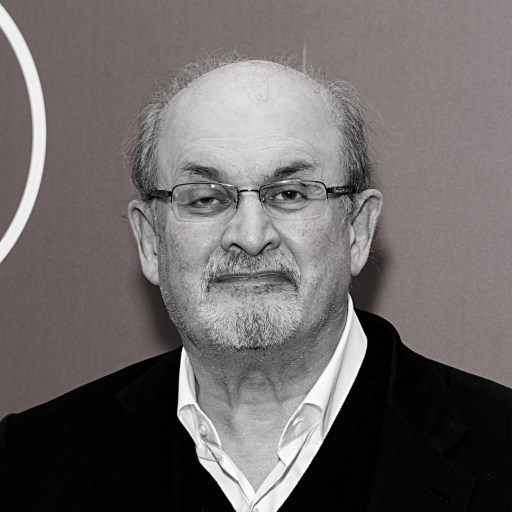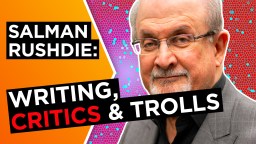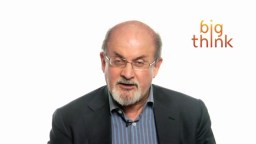Salman Rushdie
Author
Salman Rushdie is the author of fourteen novels, a book of stories, and four works of non-fiction. He is also the co-editor of an anthology of contemporary Indian writing, called Mirrorwork, and of the 2008 Best American Short Stories anthology.
Rushdie has received many honors, including the Whitbread Prize for Best Novel, the Writers’ Guild Award, the James Tait Black Prize, the European Union’s Aristeion Prize for Literature, Author of the Year Prizes in both Britain and Germany, the French Prix du Meilleur Livre Étranger, the Budapest Grand Prize for Literature, the Premio Grinzane Cavour in Italy, the Crossword Book Award in India, the Austrian State Prize for European Literature, the London International Writers’ Award, the James Joyce award of University College Dublin, the St Louis Literary Prize, the Carl Sandburg Prize of the Chicago Public Library, and a U.S. National Arts Award. He holds honorary doctorates and fellowships at European and American universities and is an honorary professor in the humanities at M.I.T and University Distinguished Professor at Emory University. Rushdie is also a distinguished writer in residence at New York University.
Rushdie received the Freedom of the City in Mexico City, Strasbourg, and El Paso and the Edgerton Prize of the American Civil Liberties Union. He holds the rank of Commandeur in the Ordre des Arts et des Lettres (France’s highest artistic honor). Between 2004 and 2006, he served as president of the PEN American Center and, for ten years, served as the chairman of the PEN World Voices International Literary Festival, which he helped to create. In 2007, he received a knighthood in the Queen’s Birthday Honors. In 2008, he became a member of the American Academy of Arts and Letters and was named a Library Lion of the New York Public Library.

















